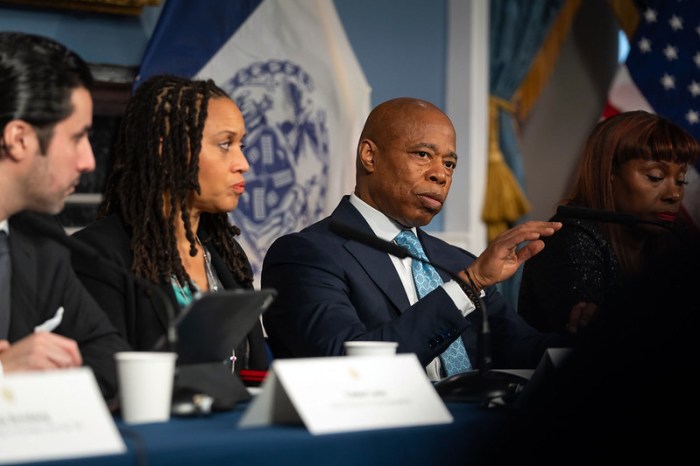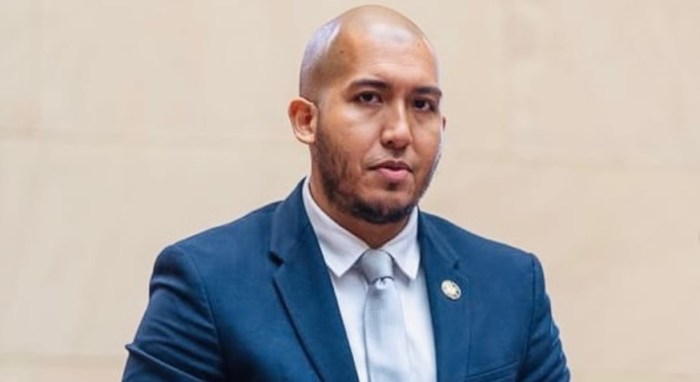BY MICHELE HERMAN | Many of us do things on the side that are formative and possibly noble but hardly get a line on our resumes. For the past 16 years, I have been an active New York City public school parent. Most of those years I’ve served on the executive board of one P.T.A. or another, and for the past three, I’ve been a parent rep on the School Leadership Team at Stuyvesant High.
My learning curve was considerable: when my older son entered kindergarten at P.S. 3, my first job was folding the auditorium chairs. During my younger son’s last years at Stuyvesant, when the administration was edging toward a one-size-fits-all educational approach, I was fighting hard for things I believe all kids deserve from their school: humaneness, flexibility and breadth of offerings.
Along the way I learned library software, helped hire two principals, organized writing festivals, took a ream of minutes, sent out weekly email blasts, recruited officers, made speeches, and wrote a multi-page monthly newsletter, handbooks and a manifesto. I wasn’t even close to being one of the most involved parents. I bow down before all the good-humored, overtired presidents under whom I’ve served. I bow even deeper before the parents who are working to reform the whole system.
And then my little one got the fat envelope in the mail, and I understood that this thing — this hobby? This advocacy work? This window onto the lives of my children? This part-time job with no salary? — I’ve been doing seemingly forever is about to end. Come September, I will be left doubly bereft: no child and no school.
How I will miss my supporting role in the public schools, which may be built on an archaic model and riddled with flaws but are also among the most inherently hopeful and social and democratic places I know. Each fall, we parents organize ourselves into committees to make them a little better. We raise hundreds of thousands that go directly to school programs and materials, and we never ask to have our name put on anything. We roll up our sleeves and support the stretched-thin staff. We remind the administration that it’s all about kids and learning (not just unions and testing). How satisfying it is to walk into a building filled with people I’ve formed solid relationships with, like the parent coordinator who means it when he says that he loves to help and the various teachers who have known and loved my boys.
Now that my days are dwindling, I ask myself what all this work has amounted to. I suppose it amounts to the same thing as all effort on this earth — you try to use your finite time well and leave your patch of the world less chaotic than you found it, you find pleasure in the friendship and respect of like-minded people, and hope that entropy or bad intent doesn’t undo your good works. You teach your kids by example to be good citizens, to get involved, to speak truth to power when power is being mule-headed.
And what happens to the accumulated knowledge of us volunteers when our kids graduate? We promise that we’re just an email away. And here’s my best advice to the new parents:
It doesn’t matter what skills or how much education you have. If you are reasonable and calm, with a good inner gauge for when to open your mouth and when to keep it closed, you have something valuable to offer your child’s school.
A big public school system is always going to be full of contradictions, like the crazy autumn when my sons’ middle school won a national Blue Ribbon award for excellence and a D on its city report card. You will see humanity and committees at their worst but also at their best.
Don’t use up all your volunteering energy in elementary school — you have no idea how much they’ll need you in middle school.
Refrain from raising an issue you’re having with your own child, no matter how burning, unless it’s of broad concern to the others in the room.
Do one thing for your child’s school. Get one ad for the yearbook. Tidy up one shelf of the library. Fold some chairs. It may change your life.
Plan the big fund-raiser in the fall, when energy and idealism are running high. Keep the overhead low and invite the public.
Reach out to a recent immigrant parent. What better way to show your kids that adulthood isn’t governed by cliques?
Volunteer for any event that involves feeding the teachers. They are Pavlovian and will always associate you with pleasant things.
The most confident person in the room isn’t necessarily the smartest, and even people you don’t respect will sometimes make a valid point. Listen before making up your mind.
Raise your hand and speak from the heart and advocate for the kids. When you hit resistance or obfuscation, as you inevitably will, you can always say politely, “I don’t understand the rationale behind that policy. Would you mind explaining it in simple language?”
Ask in September if your school offers an open classroom day. Find a way to be there, even if you get docked a day’s pay and your kid claims to be mortified.
Go to at least one meeting of the S.L.T. or equivalent policy-making body. This is where you’ll learn how functional the school really is. Get elected and you’ll have a real voice.
Go in knowing that the work of a school is infinitely harder and more heroic than any challenge the for-profit world faces, and schools need all the help they can get.
Motion to adjourn, tearfully.

















